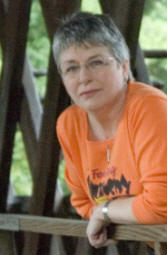
Trickster
by Brenda Sutton

If you are a dreamer, come in
If you are a dreamer, a wisher, a liar
A hope-er, a pray-er, a magic bean buyer...
If you're a pretender, come sit by my fire
For we have some flax-golden tales to spin.
Come in!
Come in!
—Shel Silverstein
From the opening lines of
Where the Sidewalk Ends: Poems and Drawings
Listen to singer/songwriter Heather Dale's
rendition of  "Black Fox" "Black Fox"
In the study of folklore, religion, and myth Trickster is "a god, goddess, spirit, human hero or anthropomorphic animal who plays pranks or otherwise disobeys normal rules and norms of behaviour."
Trickster walks between the world of Man and the realms of the gods. We teach our children to be wary of Coyote, the importance of staying alert around him, thinking before speaking, approaching him with respect and some kind of desirable gift (even if it's only your last cigarette.) When dealing with him or his cousin Fox, be prepared to receive a hard knock or a bruised bum. Their assistance costs more than expected, and is exactly what's sought if not how or when it's requested. The answers never take any ordinary form, and come packaged with pain and chagrin. Trickster is dark and dangerous and likeable, if not trustworthy -- entirely true to his ancient, archetypal heritage. Trickster steps from the shadows at inopportune and often perilous times. He appears unbidden at your elbow when you're writing or singing, sometimes in the guise of a Muse or a heckler.
"In the same sense that Jesus Christ stands at the very, very centre of Christian mythology, we have a character in our mythological universe, in our dreamlife as a people, who stands at the very centre of that universe, and that character is the Trickster" —Cree playwright Tomson Highway, quoted in The Trickster Shift
Cunning or foolish or both, Trickster's pranks and games serve the role of equalizer, and in so doing, raise awareness. We don't forget these stories; we carry the memory like a broken although mended limb.
Sometimes Trickster take the less than divine form of jester, king's fool, carneval clown, or stand-up comedian. Wearing these masks he's allowed, by virture of the cap with bells on, to say and do outrageous things — outrages that might condemn another less tricksey person.
Trickster is almost always male, though some female Trickster characters are well known (Shakespeare's heroines who must don the beard and costume of men in order to be heard; Eris, the goddess of misadventure; Pippi Longstocking, to name a few.) In a recent conversation with writer Ellen Kushner, she said that we probably don't have many female Trickster figures because the most obvious outward symbol of woman is that of Mother and Wife. Trickster is so very undependable, devious, and at times wicked. The idea of Mother or Wife imbued with these characteristics is more than most humans want to consider. Male or female, Trickster is clever, mischievous, and cunning, surviving the dangers and challenges of the world by wit and wisdom. Think twice before you accept his help.
Enjoy Margaret Attwood's review of Lewis Hyde's modern humanist study of the trickster archetypes and their effects on society and its evolution, Trickster Makes This World: Mischief, Myth, and Art.
Find out more about Shel Silverstein
More on "Trickster":
 Brenda Sutton is the publisher of Mythic Passages, Operations Director, Corporate Secretary, and Office Administrator for Mythic Imagination Institute. She is an award-winning singer/songwriter with the internationally reknown band Three Weird Sisters. She works in a support and consultant capacity for the non-profit music organization Interfilk, and maintains their website. She is freelance writer whose work has appeared in newspapers and magazines. She is also the mother of five, grandmother of two.
Brenda Sutton is the publisher of Mythic Passages, Operations Director, Corporate Secretary, and Office Administrator for Mythic Imagination Institute. She is an award-winning singer/songwriter with the internationally reknown band Three Weird Sisters. She works in a support and consultant capacity for the non-profit music organization Interfilk, and maintains their website. She is freelance writer whose work has appeared in newspapers and magazines. She is also the mother of five, grandmother of two.
Return to Passages Menu
Subscribe to the Passages e-newsletter
Return to the Mythic Glossary
|

